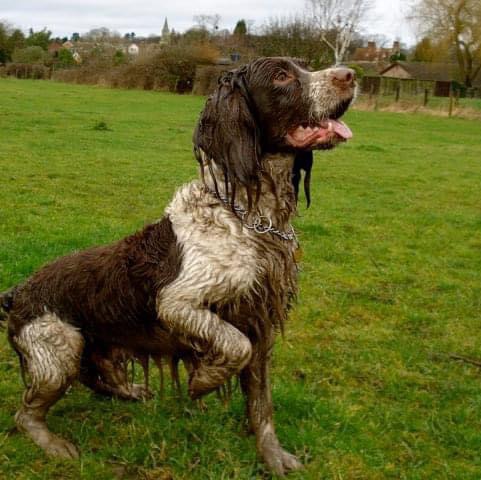Dog owners are being urged to recognise the signs of ‘Alabama Rot’ with a case confirmed in the Forest of Dean in recent weeks, and also a number of cases were confirmed in Herefordshire in 2024.
More on the case in the Forest of Dean (shared by Severnside Veterinary Practice:
“Unfortunately we are writing to inform you all that we have recently lost a dog to canine CRGV (“Alabama Rot”), which has been confirmed histologically following a clinically assumed diagnosis.
“The unfortunate dog in question was often walked around Yorkley and Viney hill, though had also been walking outside of the county within the two weeks prior to symptoms starting.
“It is important to remember that CRGV is a rare disease, and we have had no further cases as yet – hopefully this continues to be the case.
“That said it is advised to be vigilant for any potential symptoms, as well as washing down dogs thoroughly after walks to remove all mud and dirt from their coat.
“Whilst the cause is still unknown, CRGV is a serious disease which typically starts with ulceration of the distal limbs and face, often progressing to an acute renal failure which is usually fatal.
“Skin lesions can be very difficult to distinguish from far more common and benign lesions such as cuts, wounds, stings or bites. Cases cannot be diagnosed from photographs alone, and if there are any concerns then please arrange for an appointment, though even then the diagnosis cannot be sure and once skin lesions have developed the prognosis is grave.
“Our thoughts are with the family who have lost their beloved pet.”
Alabama rot, otherwise known as Cutaneous and Renal Glomerular Vasculopathy (CRGV), is a disease that affects dogs.
It damages the blood vessels in the skin and kidneys, which causes visible sores on the skin and can lead to severe organ dysfunction and ultimately kidney failure.
The cause of the disease is currently unknown, though research is on-going. Since December 2012, a small number of cases have been seen throughout the UK.
Most reports come from pet owners who walk their dogs in the countryside, and most cases are reported during winter and spring.
Generally, cases are rare in the summer months compared to the colder months.
What might you see:
Unexplained redness
Sores (a defect in the skin)
Swollen skin
Your dog licking their paws more than usual
Additional signs that may be seen if kidney problems develop:
Vomiting.
A change in behaviour such as not eating or being excessively tired.
These later signs can develop a few days after the skin sores have appeared or at the same time.
If you’re concerned that your dog may be suffering, you should contact your vet immediately.
The number of cases reported in the UK is extremely low, so there’s little reason to be worried.
Thousands of dogs are walked in the countryside every day, and it’s important to remember that only a very small number of dogs have been affected.
The threat is very low, and while there may be an environmental trigger, we can’t confirm that some areas are safer than others.
List of cases – https://www.alabama-rot.co.uk

